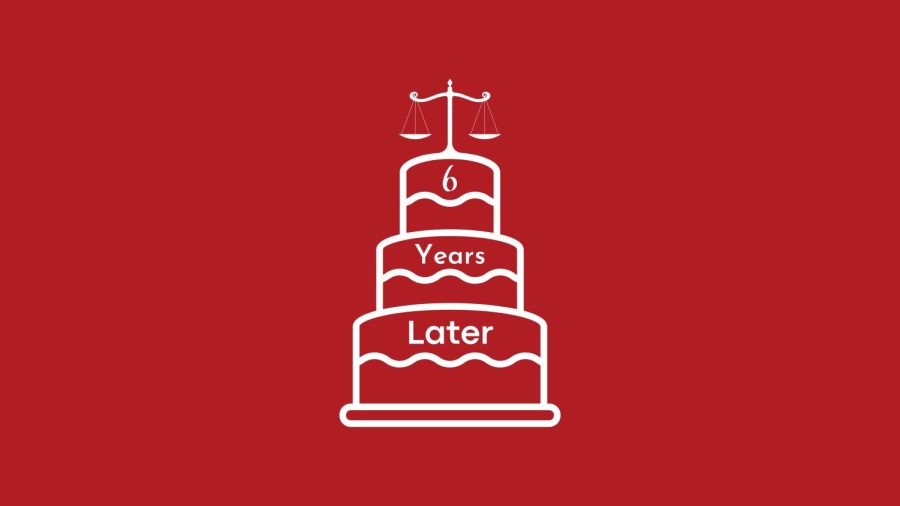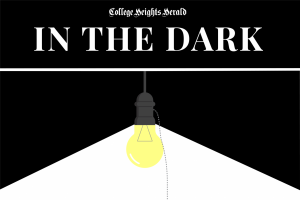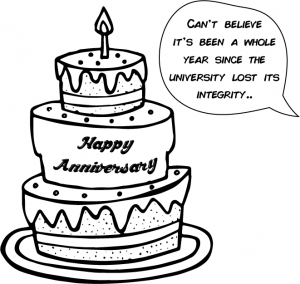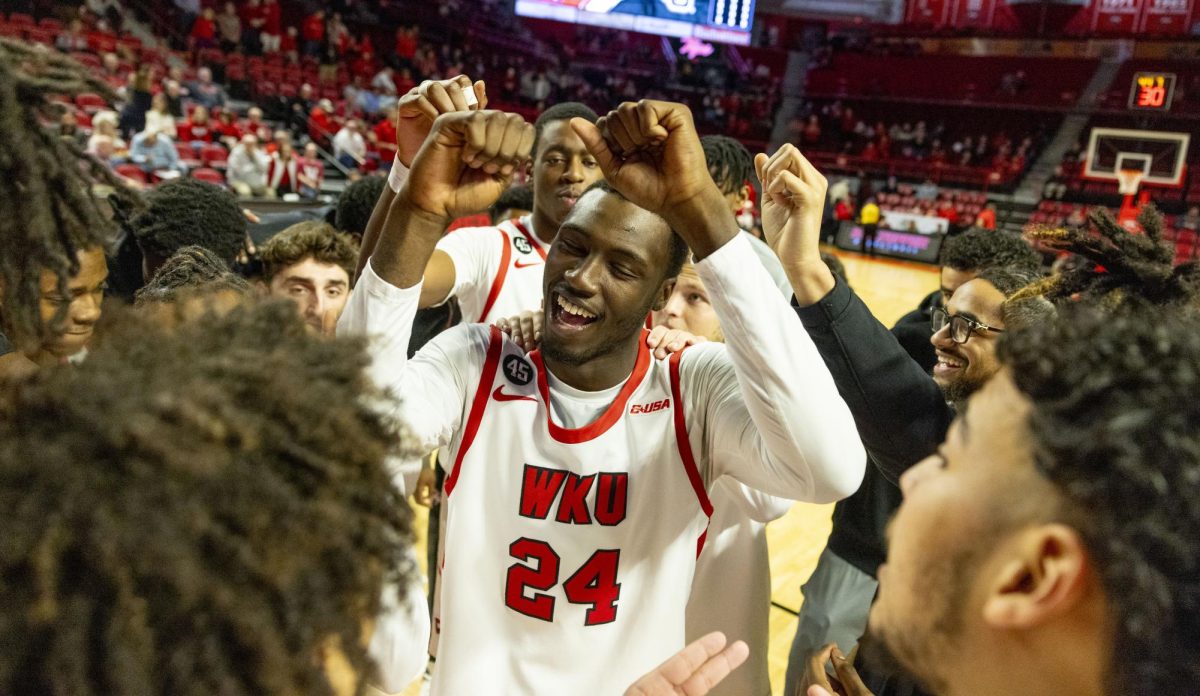EDITORIAL: WKU’s lawsuit against the Herald turns six
February 23, 2023
Nearly six years ago, on Feb. 28, 2017, Western Kentucky University sued the College Heights Herald.
Let’s back up a little bit.
In November 2016, the Herald filed an Open Records Request for all Title IX investigative records into WKU faculty and staff sexual misconduct allegations that occurred in the five years prior. While WKU refused to turn over any of the records, it said its Title IX investigations resulted in six employee resignations since 2013 for violations of university policy.
But WKU would not let the Herald see those records. The Herald appealed WKU’s denial to then-Attorney General Andy Beshear.
The attorney general then asked WKU to let the AG’s office review the documents to see if they had been properly denied. Again, WKU refused and declined to provide the documents to the attorney general. That led to a ruling that WKU was in violation of the Open Records Act because AG review of denials is a key component, and perhaps the most important component, of the Open Records Act.
The attorney general ruled in January 2017 that WKU had violated the Kentucky Open Records Act and ordered WKU to turn the documents over to the Herald. As the Herald’s editor wrote at the time, “simply put, [the university] had broken the law.”
Instead of following the attorney general’s directive, WKU sued the Herald, the only way to appeal such a ruling.
Months later, in a meeting with the Herald’s editorial board, WKU President Timothy Caboni, who inherited the lawuit after he became president in July 2017, was asked if WKU would drop the lawsuit.
Caboni responded, saying that “we will fight tooth and nail to protect student privacy, particularly when it comes to the issues of sexual assault. I will not have a student’s name even possibly made public around one of the most damaging and painful experiences of that student’s life.”
This makes sense, it really does. The College Heights Herald has always strived to protect the identities and personal lives of its subjects whenever possible. But while both the Herald and WKU agree on protecting student victims, the lawsuit dragged on.
WKU did not turn over any documents until summer 2021, after the Kentucky Supreme Court ruled against the University of Kentucky in a similar lawsuit UK had filed against the Kentucky Kernel, their student paper. The Herald finally received heavily redacted — we would say overly redacted — records in 2021. Only then, more than four years after the lawsuit was filed, did WKU turn over any documents.
Still, though, nearing the six-year mark, the lawsuit drags on — so long, in fact, that the judge handling the case in Warren Circuit Court has now retired.
The goal of the Herald’s investigation was to shed light on the university’s actions surrounding the Title IX investigations and how it handles allegations of sexual misconduct. Every member of the WKU community, from students to families to the professors and other faculty on campus, deserves to feel safe and to know that the university will protect them.
The university’s efforts to protect the identities of students involved in these allegations is noble, yes. The effort to protect the identities of the university employees involved, less so.
For nearly six years, however, the debate over WKU’s actions surrounding the Title IX investigations, the importance of releasing the minimally redacted documents and the importance of ending cultures of complicity around sexual misconduct at the university level and around the world have been written about extensively.
We don’t wish to make the same argument over again. We shouldn’t have to. Sexual misconduct and harassment has been and always will be wrong, and the university should continuously work to minimize and eliminate that kind of behavior on its campus.
This Student Press Freedom Day, Feb. 23, WKU’s lawsuit against the Herald has even greater meaning to us at the Herald and even greater implications for student press elsewhere.
At universities around the nation, student journalists doggedly pursue stories that are important to students. Here at the Herald, we have watched as our colleagues have reported on breaking news, wrote feature stories and uncovered lawsuits and allegations that are not only of interest to university students, but are important to contextualizing and living life on a university campus.
These include lawsuits concerning incidents that happen in WKU residence halls or with members of the university’s Greek life. Last semester, when there was a possible explosive device reported on campus, Herald reporters and photographers didn’t shy away from the situation. They were among the first journalists on the scene.
The work student journalists do at WKU and beyond is important and admirable. They sacrifice sleep schedules – and occasionally their safety – to report on stories that keep students and faculty safe while bringing awareness to different people and organizations all over campus.
Aside from breaking news and feature stories, the College Heights Herald reports on campus events that bring awareness to causes and organizations doing important work.
Since 1927, the Associated College Press has awarded university news outlets with Pacemaker Awards. These awards are national indicators of quality, and they are a big deal. To celebrate its 100th anniversary, the ACP announced the Pacemaker 100, the publications that have received the most Pacemaker awards and finalists in its history. With 21 Pacemakers and 13 finalists as of 2022, the College Heights Herald received the distinction of being the sixth most honored college news publication in the nation.
Last month, the Herald also received numerous awards at the Kentucky Press Association’s annual awards banquet. At the banquet, our very own Jake Moore won College Journalist of the Year while he and Debra Murray were awarded the Jon Fleischaker Freedom of Information Award. This is the third time the Herald has won the Fleishaker Award in the four years it has been awarded. Herald journalists and photographers also received individual awards in a number of categories.
We list these accolades not to brag but to show that the College Heights Herald is a serious news organization that does important work. It has been recognized numerous times on the state and national levels.
Yes, we and our colleagues are student journalists, but we are just that – journalists. When writing about sensitive information, we take great care in making sure sensitive information is protected. While we report the news, we are also humans that understand the difficulties of the fine line we sometimes have to walk between protecting individuals who wish to be protected and reporting the news as accurately and with as much information as possible.
In the case of our ongoing lawsuit – which should have started kindergarten this school year – we will continue to report information that is of interest to the WKU community. This lawsuit will not slow the Herald’s efforts to report on the university’s administration and all the good and bad that comes with it.
This lawsuit was first brought before any of us first stepped on WKU’s campus as students. Now, six years later, the lawsuit has outlived the college careers of the editorial board who first requested the documents from the university. This is a lawsuit that should have been concluded years ago, yet the Herald’s staff today must continue to deal with its consequences. This should not be the case.
If the university wants the Herald to move on from this story, it should release the minimally redacted documents. If the university wants to continue making this a story year after year, it should keep doing what it has been doing.
This Student Press Freedom Day, the College Heights Herald renews its commitment to doing things how it has always done them – professionally.
If you would like to submit a reaction to a piece, Letter to the Editor or other submission, please send it to commentary editor Price Wilborn at [email protected] or [email protected].



















